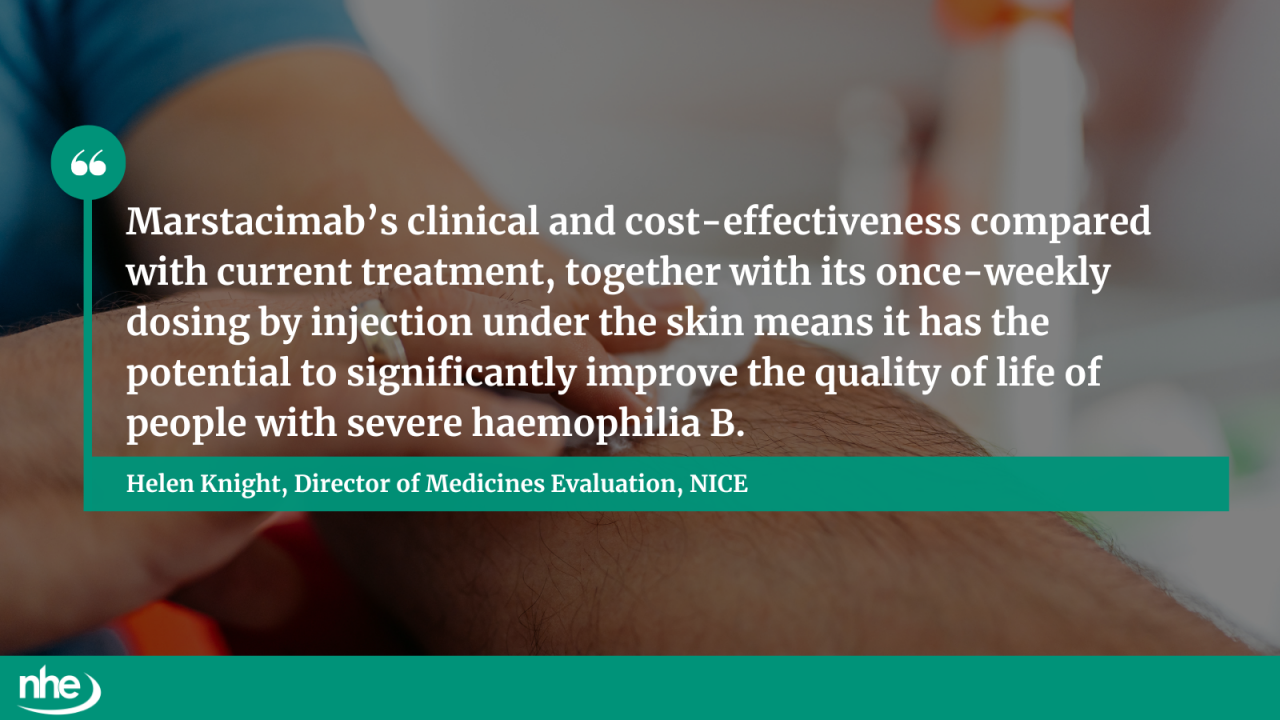In a major breakthrough for haemophilia care, the National Institute for Health and Care Excellence (NICE) has issued final draft guidance recommending marstacimab (Hympavzi, by Pfizer) for treating severe haemophilia B in people aged 12 and over.
This marks the first time a subcutaneous (under the skin) treatment has been approved for this rare and serious blood disorder. Marstacimab, administered once weekly via a pre-filled syringe or pen, offers a more convenient alternative to the current standard of care—factor IX replacement therapy, which requires intravenous infusion.
Haemophilia B is a lifelong, inherited condition that impairs the blood’s ability to clot due to a deficiency or dysfunction of clotting factor IX. People with severe haemophilia B are at risk of spontaneous bleeding into joints and muscles, even without injury. The condition affects around 255 people in England, with an estimated 205 eligible for marstacimab treatment.
Unlike existing therapies, marstacimab works by targeting a specific protein in the clotting process, helping to restore normal clotting function. This innovative mechanism makes it the first of its kind in haemophilia B care.
Helen Knight, Director of Medicines Evaluation at NICE, commented:
“The independent evaluation committee heard from patients who said they would value a new treatment option for severe haemophilia B. They explained that factor 9 replacement therapy to prevent bleeding requires an infusion, sometimes as often as every 2 to 3 days.
“Marstacimab’s clinical and cost-effectiveness compared with current treatment, together with its once-weekly dosing by injection under the skin means it has the potential to significantly improve the quality of life of people with severe haemophilia B.
“Today’s decision, coming just weeks after the treatment received its UK licence, demonstrates our commitment to getting the best care to people fast, while ensuring value for the taxpayer.”

The new treatment is expected to significantly improve quality of life for eligible patients by reducing the burden of frequent infusions and offering a more discreet, manageable option.
However, NICE concluded that marstacimab is not a cost-effective option for people with severe haemophilia A, where other treatments such as factor VIII, emicizumab, and efanesoctocog alfa remain the preferred options.
Today’s decision follows the recent UK licensing of marstacimab and is seen as a pivotal moment in expanding treatment choices for people living with haemophilia B.
Image credit: iStock



















